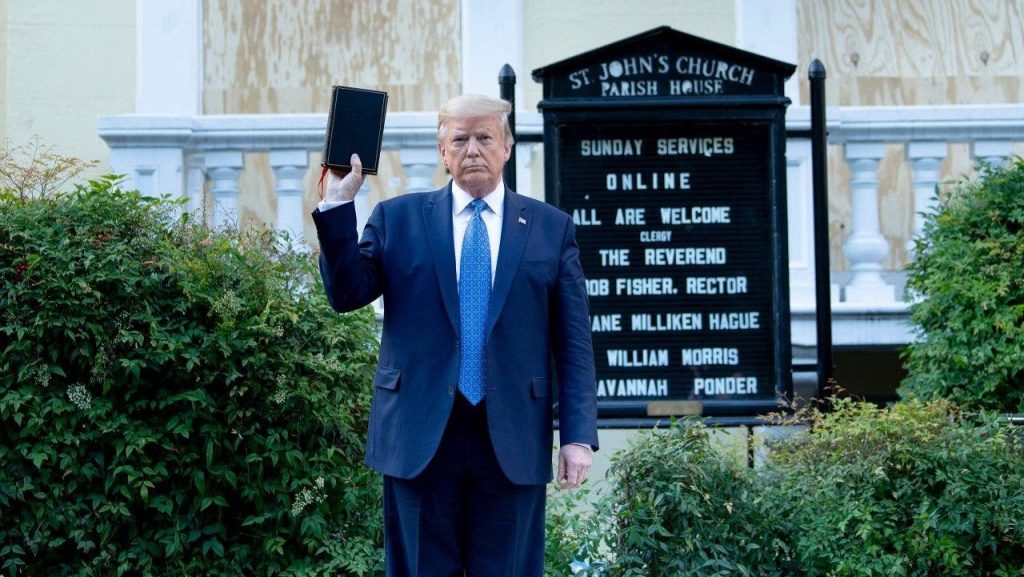The Department of Justice (DOJ) has taken responsibility for actions taken by former President Trump against protesters in 2020. In a court filing, the DOJ certified that Trump was acting within the scope of his office when he ordered the National Guard to disperse rioters near the White House after the death of George Floyd. The DOJ’s Torts Branch head, James Touhey Jr., stated that Trump was acting within the boundaries of his federal office at the time of the incident in question.
Following Floyd’s death, three individuals who were protesting on Lafayette Square in 2020 are seeking damages from Trump over the National Guard’s use of chemical weapons to disperse the crowd. They claim that their constitutional rights were violated when military personnel cleared and secured the square on the orders of Trump. The officers used pepper balls and smoke bombs, as well as physically forced protesters out of the area. The DOJ has requested the plaintiffs’ cases be dismissed for lack of evidence of constitutional rights violations.
A federal judge had previously dismissed most cases surrounding the incident in 2021. With the DOJ’s certification that Trump was acting within the scope of his federal office, the department will be responsible for any liabilities found against the former president. This case provides an opportunity for judges to apply and clarify the Supreme Court’s July ruling, which recognized broad immunities for the president while conducting official business.
The DOJ’s sudden certification in Trump’s favor aligns with the government’s traditional role of defending federal officials in civil suits related to their official duties. The certification indicates that the DOJ is prepared to handle any legal liabilities that may arise from Trump’s actions against protesters in 2020. This move could set a precedent for how courts interpret the broad immunities afforded to the president while performing official duties.
The DOJ’s decision to stand behind Trump raises questions about the role the federal government should play in cases involving former presidents and the legal protections they are entitled to. The certification could have larger implications for future cases involving federal officials and their conduct in office. It remains to be seen how courts will apply the DOJ’s certification and the Supreme Court’s ruling in this and similar cases going forward.
Overall, the DOJ’s certification that Trump was acting within the scope of his office during the Lafayette Square incident in 2020 highlights the complex legal issues surrounding the actions of federal officials, including former presidents. As the case progresses, it will be important to see how courts interpret the DOJ’s stance and whether it influences the outcome of the plaintiffs’ claims against Trump. This case serves as a test for how the legal system navigates the immunities and responsibilities of federal officials in cases of alleged constitutional rights violations.


